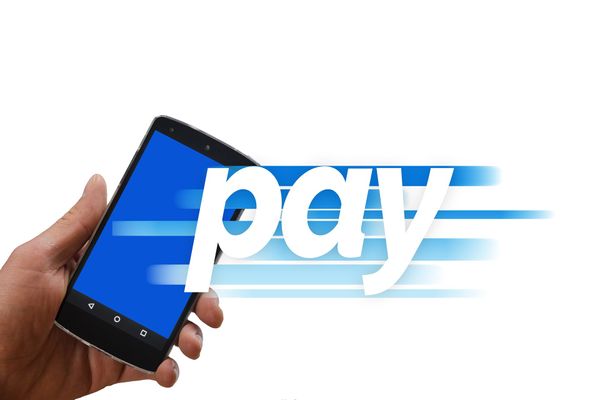What are Zelle scams and how to avoid them

Zelle is a popular peer-to-peer payment service that allows users to transfer money directly between bank accounts. To sign up, you can use Zelle or your banking app if it offers Zelle's service. Once enrolled, you can pay someone by entering their email address or phone number. Then, choose the amount of money you want to send, and the recipient will get instructions on how to receive the payment instantly.
While very convenient to use, it comes with a downside: you cannot cancel a digital payment once it's on its way. And that's a feature scammers like.
Did you know?
Here are three interesting facts about Zelle in 2023:
- Over 120 million consumers and small businesses used Zelle through their financial institutions.
- In total, 2.9 billion transactions were made through Zelle, amounting to $806 billion.
- The largest quarter to date was Q4 2023, with more than $219 billion transacted across the Zelle Network®. On average, more than $100 million was sent per hour.
How Do Zelle Scams Work?
Zelle scams use social engineering tactics to manipulate victims into sending money. Scammers may create a sense of urgency, play on emotions like fear or greed, or exploit people's trust in authority figures or trusted brands. Once the victim sends the payment through Zelle, the scammer disappears with the money, leaving the victim with little recourse for recovery.
The most common Zelle Scams
Zelle scams typically involve scammers tricking victims into sending them money under false pretenses. These scams can take various forms, such as:
Account Takeover Scams: Fraudsters impersonate trusted institutions like banks or Zelle itself through emails, texts, social media, or phone calls. They manipulate victims into revealing sensitive information such as usernames, passwords, or one-time codes. With this data, scammers gain unauthorized access to the victim's account and make money transfers.
Facebook Marketplace scams. These scams involve fraudsters creating fake online listings for items, services, or rental properties. They request payment through Zelle, promising to deliver the goods or services after receiving the funds. However, once the payment is made, the scammers disappear without fulfilling their end of the deal.
Impersonation Scams. Scammers impersonate customer service representatives, family members, friends, or authority figures to gain the victim's trust. They create believable stories or scenarios to request money transfers through Zelle, often citing urgent situations or emergencies.
Lottery and Prize Scams: Victims receive notifications claiming they have won a lottery, sweepstakes, or prize. To claim the supposed winnings, scammers instruct victims to pay various fees, taxes, or security deposits through Zelle. However, no such winnings exist, and the scammers disappear with the money.
Romance Scams: Fraudsters create fake romantic relationships with victims, often on dating sites or social media. After building trust, they fabricate urgent financial needs or investment opportunities, requesting money transfers through Zelle. Again, once the payment is made, the scammers cut off contact.
Investment Scams: Scammers present fake investment opportunities, such as stocks, real estate, or cryptocurrencies. They build credibility through false credentials and testimonials, pressuring victims to invest immediately via Zelle to secure supposed lucrative returns or limited-time offers.
Employment Scams: Fraudsters post attractive job listings or conduct fake interviews, offering victims employment opportunities. They then request payment through Zelle for supposed training materials, supplies, or processing fees, exploiting the job-seekers interest.
Charity Scams: Scammers pose as representatives of non-existent or legitimate charities, often during times of crisis or natural disasters. They create compelling narratives and exploit emotional appeals to solicit donations through Zelle, which they pocket for personal gain.
Event Ticket Scams: Scammers advertise fake or non-existent tickets for popular concerts, sporting events, or shows that are sold out. They create a sense of legitimacy with detailed ticket information and imagery and request payment through Zelle for the bogus tickets.
Rental Property Scams: Fraudsters create fake rental listings with alluring prices to entice victims. They claim high demand and urgency, pressuring potential renters to quickly secure the property by sending deposits or rent through Zelle. Scammers avoid in-person meetings, providing excuses like being out of town or the unit being occupied. They may share detailed information and fake lease agreements to appear legitimate.
Related: 5 Instagram scams exposed. How to protect yourself
10 Tips to Avoid Zelle Scams
Here are some tips to help you use Zelle safely:
1. Be cautious of unsolicited requests: Never send money to someone you don't know or trust, especially if the request seems suspicious or unsolicited.
2. Verify the recipient: Before sending money through Zelle, verify the recipient's identity and the legitimacy of their request.
3. Don't fall for "urgent" payment requests. Beware of scammers using fear tactics to pressure you into making hasty decisions. Don't let them frighten you.
4. Avoid job offers involving money transfers: Be cautious of job offers requiring you to receive and transfer money, as this is a common tactic scammers use.
5. Don't pay for online listings until you receive the item: When buying items online, only pay after you have received and inspected the item, if possible.
6. Never share your sensitive information: Zelle and your bank will never ask for sensitive information like your login credentials or social security number.
7. Report suspicious activity: If you suspect a Zelle scam, immediately report it to your bank and file a complaint with the appropriate authorities.
8. Regularly check your credit report and bank statements: Scammers are often after your financial accounts. Check for warning signs of identity theft, such as strange charges or accounts you don't recognize.
9. Set up two-factor authentication (2FA): Enable two-factor authentication for an additional layer of security. This process requires authenticating through your computer and a text message or authenticator app, making it much harder for scammers to breach your account. Never share these single-use codes with anyone.
10. Use Scamio to uncover scammers. Scamio is an AI-powered scam detection tool that can help you recognize and avoid online fraud. It verifies links, QR codes, messages, and other suspicious communications you receive through email, text, or instant messaging apps. You can start chatting with Scamio right now, as it is completely free, and you can access it on any device or operating system via your web browser or through Facebook Messenger.
FAQ about Zelle scams
Can I use Zelle to send and receive payments from strangers safely?
It is generally not recommended to use Zelle for transactions with strangers.. Zelle is designed to send money to people you know and trust, such as family and friends. Be cautious when receiving unsolicited payment requests, as they may be part of a scam attempt.
How can I recover my money if I paid a scammer through Zelle?
If you've fallen victim to a Zelle scam and sent money to a scammer, the chances of recovering the funds are very low. Zelle transactions are designed to be instantaneous and irreversible, making it impossible to recall the funds once they've been transferred. However, you should report the fraud immediately to your bank or financial institution. They can provide guidance on the next steps or assist in recovering the money if the scammer's account can be identified and the funds haven't been withdrawn yet. File a report with the appropriate authorities, such as the Federal Trade Commission (FTC) or the Internet Crime Complaint Center (IC3), as this can help track and potentially prosecute the scammers.
How can I spot a Facebook Marketplace Zelle scam when buying an item?
To avoid Zelle scams while buying on Facebook Marketplace, watch out for these red flags: suspiciously low prices or deals that seem too good to be true, rushed transactions or high-pressure tactics to make a quick purchase, newly created accounts, or unprofessional communication. Before proceeding with a transactioncheck out the seller's identity and credibility. Review their Facebook profile and history, and search their name, email address, or phone number online for any potential scam reports or complaints and don’t hesitate to send information to Scamio for a second opinion.
tags
Author
Cristina is a freelance writer and a mother of two living in Denmark. Her 15 years experience in communication includes developing content for tv, online, mobile apps, and a chatbot.
View all postsRight now Top posts
How to Protect Your WhatsApp from Hackers and Scammers – 8 Key Settings and Best Practices
April 03, 2025
Outpacing Cyberthreats: Bitdefender Together with Scuderia Ferrari HP in 2025
March 12, 2025
Streamjacking Scams On YouTube Leverage CS2 Pro Player Championships to Defraud Gamers
February 20, 2025
How to Identify and Protect Yourself from Gaming Laptop Scams
February 11, 2025
FOLLOW US ON SOCIAL MEDIA
You might also like
Bookmarks







